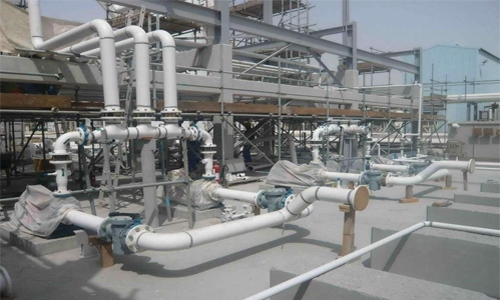Fees for sewage, sanitary services for expats mooted
Expats may soon have to pay for sewage and sanitary services in Bahrain. It was announced that fees on sewage services might be imposed to compensate the government’s huge spending in this sector.
According to Works, Municipalities Affairs and Urban Planning Ministry, BD300 million had been spent on sewage sites and projects during the past 15 years.
The Ministry also revealed that BD75 million was expected to be invested in this field in the next 14 years.
This was unfolded in a recent report of Public Utilities and Environment Parliamentary Committee. The committee announced that it discussed and approved a law proposal to amend some of the decrees of the existing Law 33 of the year 2006 in regards to sewage and surface water discharge. In the report, it was mentioned that “the proposal comes to refund part of the governmental services’ costs to maintain their quality, fulfil part of the increasing financial requirements in the sector and to provide highest standards of sewage services.”
The Ministry confirmed that developing sewage and sanitary services had been a priority in Bahrain since the mid seventies, resulting in providing these services to 95 per cent of the country.
In its reply to the committee’s queries, the Ministry stressed that it’s necessary to compensate the huge spending on sanitary services, as it is 100 pc subsidised, and to contribute in curbing the increasing government expenditures.
The Ministry also said that the proposal would impose fees on connecting sanitary networks services, monthly sewerage discharge services, wastewater treatment and providing treated water services.
“The fees will be included in the electricity and water bills to facilitate the process. It will be first imposed on industrial and commercial establishments, and in the future meagre amounts will be imposed on the domestic sector,” the Ministry elaborated.
The Ministry insisted that it’s not seeking to impose the fees on citizens in the meantime and will consider water consumption rates before doing so.
Related Posts

